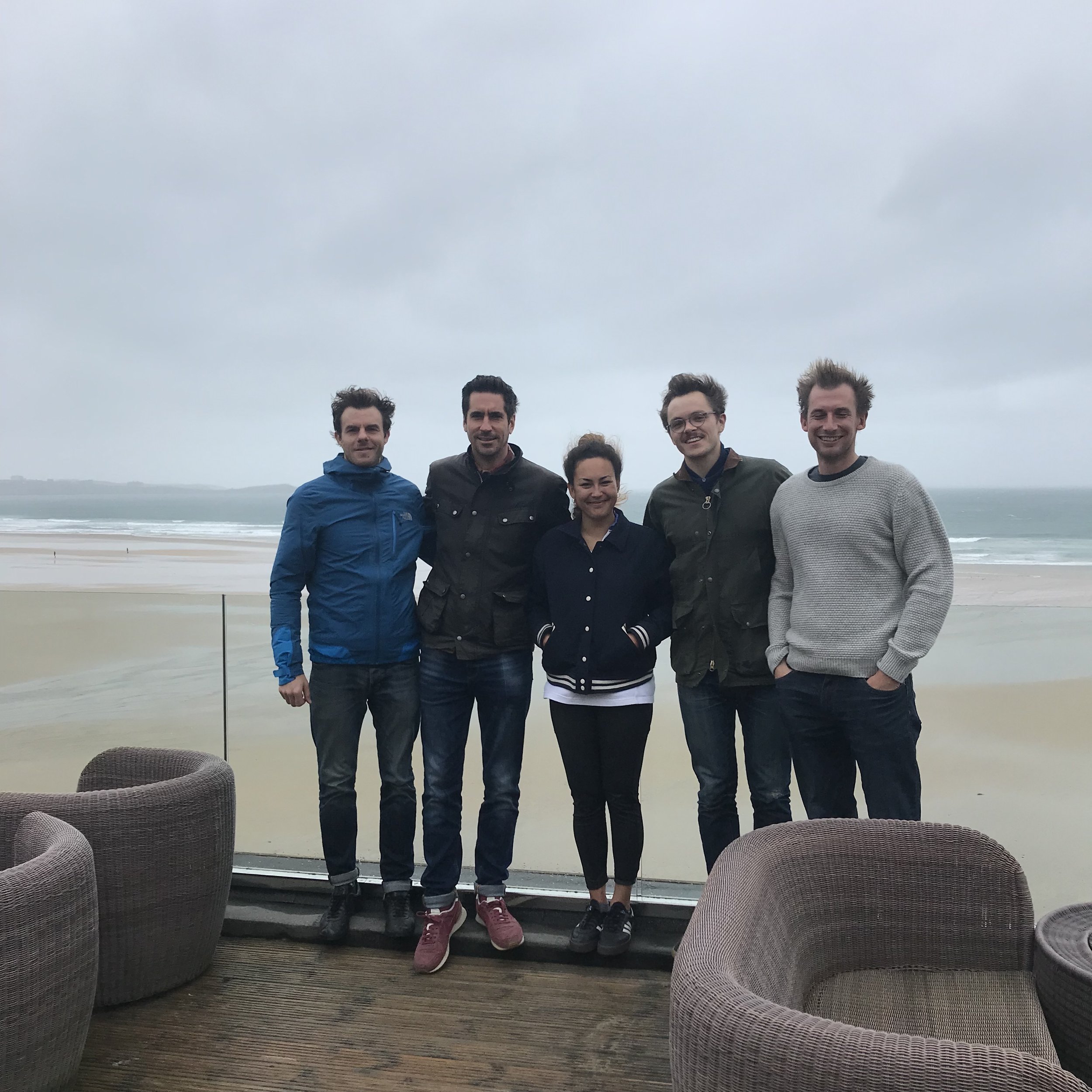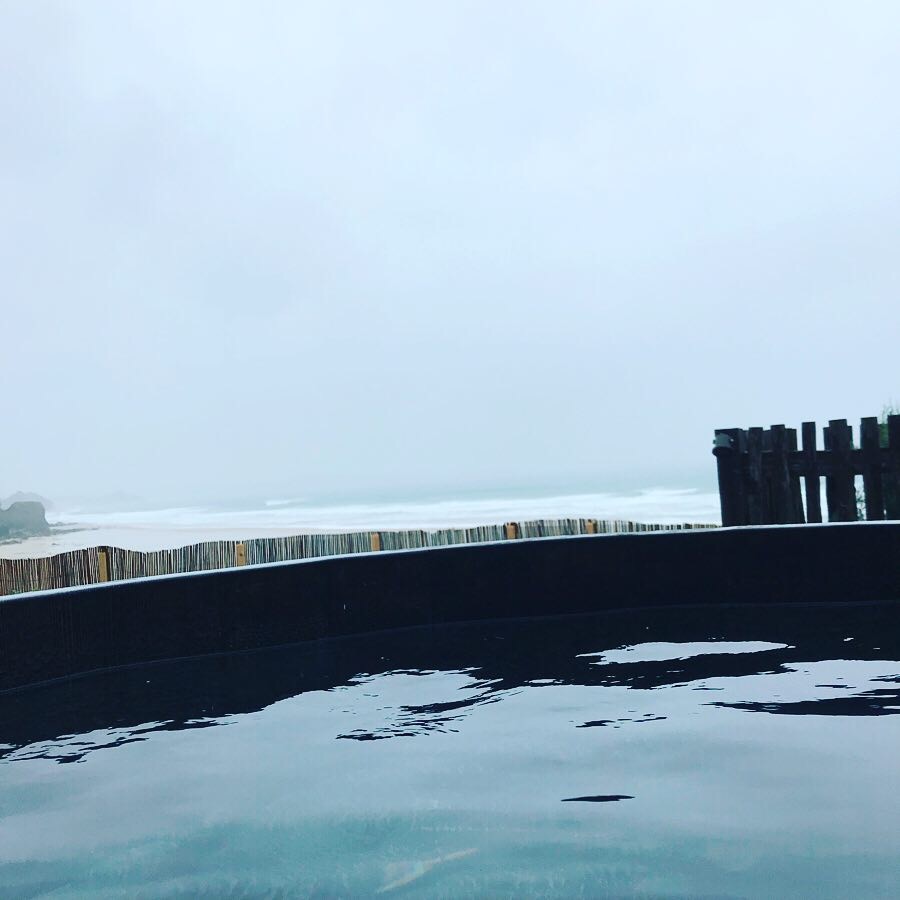We didn’t spend the whole of 2022 writing. We were reading, too. And as the country hurtled through crises, multiple prime ministers, heatwaves, big freezes and economic death drops, we found wisdom, joy and solace in the pages of our books.
The books on this list were not necessarily published this year, or topically connected. The only common thread is that we read them, we liked them, and we thought you might too.
So welcome to our 2022 book list. There’s a something for everyone (as long as you like fishing.)
THE TLDR BOOK LIST:
English Pastoral by James Rebanks
Uncanny Valley by Anna Weiner
Think Like an Artist by Will Gompertz
Maus by Art Spiegelman
Londoners by Craig Taylor
Crossroads by Jonathan Franzen
Lone Rider by Elspeth Beard
The Trees by Percival Everett
On the Road by Jack Kerouac
Station Eleven by Emily St John Mandel
Gone Fishing: Life, death and the thrill of the catch by Mortimer and Whitehouse
Blood Knots by Luke Jennings
The Power of Geography by Tim Marshall
The Walker's Guide to Outdoor Clues and Signs, by Tristan Gooley
Lost Lanes: Wales by Jack Thurston
Modernists & Mavericks: Bacon, Freud, Hockney and the London Painters by Martin Gayford
First You Write a Sentence by Joe Moran
Life Ceremony by Sayaka Murata
The Baron in the Trees by Italo Calvino
Americanah by Chimamanda Ngozi Adichie
The History of Bees by Maja Lunde
This Earth of Mankind by Pramoedya Ananta Toer
The Rosie Project by Graeme Simsion
Putin's People by Catherine Belton
The Snow Leopard by Peter Matthiessen
The Left Hand of Darkness by Ursula Le Guin
The Every by Dave Eggers
Ready for the deep dive? Put your snorkel on…
Reading comes naturally: Dan’s top pick for 2022
Dan’s Picks:
English Pastoral by James Rebanks
UK nature writing tends to lean towards wilderness and exploration, rather than working with the land. James Rebanks has redressed the balance with The Shepherd's Life and his latest book, English Pastoral. It shines a light on the plight of sustainable farming in the UK and it is unashamedly political in places—but at its heart is a rousing, enrapturing tale of life on a Lake District farm.
Uncanny Valley by Anna Weiner
Silicon Valley was once seen as the guiding light for the future of tech. But as recent events with a certain Elon Musk have shown, the waters are getting a little murky. Uncanny Valley by Anna Weiner shines a light into the depths. Working within various start-ups during the San Francisco tech boom, Weiner exposes everything from VCs throwing money at every charismatic kid in town, to a toxic 'tech bro' culture that manages to gain terrifying amounts of power in Western culture.
Think Like an Artist by Will Gompertz
After the crazy few years we've all been through, it feels like my creative nerves have become a bit frazzled. This little book by former BBC arts editor Will Gompertz has helped to bring them back to life. Gompertz looks at the working habits and creative obsessions of artists like Caravaggio, Mondrian and Turner to explore how their thinking can influence ours. It certainly helped me figure out some new creative habits (and learn a bit more about famous painters).
Maus by Art Spiegelman
Graphic novels have never really done it for me, But Maus by Art Spiegelman is quite something. It tells the story of how Spiegelman's father survived the Holocaust as a Polish Jew. The story uses anthropomorphism throughout, with the Nazis shown as cats, and the Jews represented by mice. The effect is an innocence to the whole thing, which only makes it more devastating. Maus was this year banned by a school in Tennessee, which makes the reading of it more vital than ever.
Londoners by Craig Taylor
Despite being born and raised in The North, I have been in love with London for as long as I can remember. As such, I've read a bunch of books about the history, culture and life of the city. Londoners by Craig Taylor is one of the best. Through a series of interviews with all types of Londoner—from cabbies to investment bankers—Taylor manages to show London in a whole new light. Some of the interviewees hate the place. Some are trying their best to change it. But all of them are addicted to it.
A crime novel? A thriller? A black comedy? Whatever it is, Jack S recommends it.
Jack S picks:
Crossroads by Jonathan Franzen
If you like Franzen's in-depth tales of dysfunctional middle-American families (and how could you not?) then you'll love his latest book. Set around Christmas 1971, it delves into the life of Russ Hildebrandt, pastor of the First Reformed Church, his unhappy wife and his troubled children. Doesn't sound particularly uplifting but it's warm and funny and the first part of a trilogy - so that's two more books to look forward to when they're published. If you like big American novels, you'll love it.
Lone Rider by Elspeth Beard
If I'm honest, I've struggled to put anything other than motorcycle travel books on my list this year. I've read the lot - from Ted Simon's classic to quite a lot of self-published nonsense. However, the one that stands out is by Elspeth Beard who set off alone in 1982 to motorbike around the world. One of the most interesting aspects of the book is her family's attitude, who wouldn't engage with her trip and thought she should just settle down with a nice husband. In fact, their disinterest on her return deflated her so much she simply put all her diaries and photos in a box and forgot about them. Many years later, adventure motorcycling began to go mainstream and a conversation with a journalist made her realise what she'd achieved. This is her story of becoming the first British woman to motorcycle around the world.
The Trees by Percival Everett
How do you summarise this book? It's a crime novel about a series of brutal murders in Mississippi. It has the creeping tension of a horror in places. Enough laughs to fully qualify as a dark comedy. And most importantly it's a brutal satire of racism in the US. It's a page-turning, thought-provoking read and was longlisted for this year's Booker prize.
On the Road by Jack Kerouac
Continuing the travel theme, I read this during a holiday to California. I'm not 100% certain I understood it all, and the novel certainly has some issues, but there's no denying it builds an infectious excitement for travel, meeting new people and leaving life to fate. The fact that it was largely based in the areas we were travelling through made it all the more impactful - and the fact that I wasn't travelling with the rapidly unravelling Dean Moriarty was a constant relief.
Station Eleven by Emily St John Mandel
Too soon for a post-apocalyptic pandemic novel? Not for me. This was actually written well-before Covid-19 but I missed it first time around. It's a brilliantly written novel about a nomadic group of actors who travel around the US following a flu pandemic that destroyed society. It jumps back and forth across decades, telling the stories of a few different survivors - including a threatening figure who now calls himself The Prophet. I think now might be the perfect time to read this, if only to freak yourself out about how bad things could have got. But I guess the decision about whether it's too soon or not is a very personal one.
Compliments for fishing: Ed’s literary catch of the year
Ed’s picks:
Gone Fishing: Life, death and the thrill of the catch by Mortimer and Whitehouse
This is definitely one for men with a 4 or a 5 at the front. It's not really about fishing, but instead about the important and rather gentle thing that is an enduring friendship between men who have both been through the mill, and who are now invested in each other's wellbeing. The fishing bits are good too. The narrative bounces between Bob and Paul in a way that makes you laugh out loud. And if none of this really floats your hook, buy the book anyway. We owe it to them for The Fast Show and Shooting Stars. (If you start with a 1, 2 or a 3, go and look them up).
Blood Knots by Luke Jennings
So this is a book about, er, fishing and friendships. My thanks to my generous and rather wonderful friend Ed Wilson for this one. A deliciously sensory book, constructed as a memoir that takes you on a nostalgia-studded drive in a grey Bedford van through the country lanes and London backstreets of the 60s and 70s, it gets you right in there into the moment. Who knew how exciting it could be, fishing for giant pike at midnight in a canal just north of Kings Cross?
The Power of Geography by Tim Marshall
If you enjoyed 'Prisoners of...' then you'll like this second instalment of history, geopolitics and how a lot of the seemingly non-sensical actions from baddies around the world are, in fact, based on cold hard (albeit a bit dastardly) logic. You do slightly get the impression that, at some point, Tim's publishers sat him down and said 'brilliant, now can you do exactly the same thing again?' But despite that, the book feel different enough, and of course extremely interesting. There is no fishing in this book.
The Walker's Guide to Outdoor Clues and Signs, by Tristan Gooley
This is a dip in, dip out book, and a brilliant one for any other Covid cliché like me who moved to the countryside and bought a dog. I always thought I sort of 'knew' the countryside, but I am, of course, totally wrong. It turns out there are 19 ways to navigate by tree.
Lost Lanes: Wales by Jack Thurston
The Lost Lanes books cover quite a lot of the country, so if Wales isn't your thing then head lostlanes.co.uk for other options. There's a lot to love about these little books that give you the ins, outs, ups and downs of bicycle routes across the region. We can't always be out there riding the high road with the wind in our hair and our lunch stashed in our panniers. But we can dream. (Big thanks to my friend Jess Hatcher for this one.)
Reading about painting: almost as good as painting
Jack W’s Picks:
Modernists & Mavericks: Bacon, Freud, Hockney and the London Painters by Martin Gayford
I had a plan to get really into painting this year. It didn’t happen. But I did read this great book about painters in post-war London. It’s full of these mad colourful characters like Francis Bacon, Howard Hodgkin, Frank Bowling and Lucien Freud, all barrelling around post-blitz bombsite London thinking big thoughts about the purpose of painting and the future of art. It inspired me to take up painting. Next year.
First You Write a Sentence by Joe Moran
Most style guides are dull, but they shouldn’t be: if a book is about writing, being interesting is really the least it can do. This is like the anti-pedant’s grammar book. It walks you through the tools and craft of writing in beautifully lyrical ways. It’s a love letter to sentences and a celebration of style. I don’t know if it made me a better writer, but it made me want to be one. And for that, it might be the best book about writing I’ve ever read.
Life Ceremony by Sayaka Murata
I think a really talented writer can make you feel comfortable and freaked out at the same time. Sayaka Murata’s style is so clean that you don’t immediately notice how screwed up these stories are. But one gentle sentence at time she takes you to a place where it’s normal for, say, dead people’s bodies to be made into clothes and homewares by their loved ones. That’s a skill. I enjoyed getting weird with this one.
The Baron in the Trees by Italo Calvino
I tried to recommend this one to a few people when I was reading it, and their faces stayed blank. I think I wasn’t explaining it well. It’s an epic novel about a medieval 12-year-old baron who, after refusing to eat his dinner one night, escapes up a tree, where he spends the rest of his life. It’s a metaphor for…something. It’s about determination, and stubbornness, and the lives we make for ourselves. I read it while listening to a band called This Is The Kit, whose folky grooves fit this really nicely.
Americanah by Chimamanda Ngozi Adichie
I read this around the time my son was born this year. I even read it a bit on the maternity ward (not during The Event, obviously, but there’s a lot of waiting around involved in having a kid so it’s helpful to have a book to hand – it’s just got to be the right book.) That’s not relevant, but my point is, this is the kind of novel that’s worth reading even in big real-life moments. It’s about the experience of Nigerian migrants from to the US and to the UK, it’s also an epic love story, and it’s vivid and funny, and moving, to the extent that even if you’ve just had a son and haven’t slept in a few days, you can still get on with it.
A lot of buzz about this one. LOL.
Polly’s picks:
The History of Bees by Maja Lunde
This illuminating book follows three generations of beekeepers from the past, present and terrifying future. I found it haunting not just because it serves as an urgent reminder of how much our very existence depends on these fascinating insects. But also in the way it explores the powerful relationship between parents and their children. Whether you see this as a book filled with tragedy or one offering hope, it will certainly stay with you long after the final chapter.
This Earth of Mankind by Pramoedya Ananta Toer
So I’ve cheated a bit here. This isn’t a book I’ve read this year. But as I would encourage everyone to read This Earth of Mankind at least once I decided it was worth bending the rules.
Set against the backdrop of Indonesia’s fight for independence from Dutch colonial rule, this powerful novel charts the coming-of-age of an aristocratic Javanese boy, Minke. It’s a fascinating read, made even more so by the fact Pramoedya Ananta Toer composed it while being held as a political prison in a brutal malaria-ridden jail. And I use the word ‘composed’ here not to sound poncy but because he wasn’t initially allowed to write it down. So he repeated the chapters over and over again to himself and his fellow inmates. Eventually published in 1980 it was then banned and only returned to print in Indonesia in 2005.
The Rosie Project by Graeme Simsion
I’m not sure whether it’s a hang-up from doing an English degree or because I write for a living, but reading a fun-filled romp of a book always feels a bit naughty. Like something I shouldn’t really tell anyone about. After spending the first six months of this year on maternity leave, I decided it was time to break free and read whatever I damn well felt like. And reader, it’s been marvellous. The Rosie Project will make you laugh and cry in equal measures. Come for the eye-catching lobster on the front of the book, stay for the affectionate and profound look at what it’s like to be differently-abled.
Jim found this one unputin-downable
Jim’s picks:
Putin's People by Catherine Belton
When war broke out in Ukraine, interest in modern-day Russia understandably rocketed. I jumped on the bandwagon after hearing this book's author, Catherin Belton, speak on a podcast. It is brilliantly researched and reads like a thriller, without feeling sensationalised. It is also incredibly brave and the author/ publisher was subsequently sued by Roman Abramovich. All in all, a fascinating insight into Russia's political system and Putin's role in it.
The Snow Leopard by Peter Matthiessen
This is a beautiful book. Written in 1978, it's essentially a travel journal of a trek through Tibet as the writer (and a rather dour, enigmatic naturalist) search for the mythical snow leopard. It is wonderfully reflective and meditative. Matthieson remembers his wife, who had recently died of cancer, and writes about the world he encounters – and life itself – through the prism of Zen Buddhism. I suppose it's really a story about the search for inner peace.
The Left Hand of Darkness by Ursula Le Guin
I adore fantasy and science fiction but had never read anything by Ursula Le Guin. I did some research and this book kept popping up as one of her most important books (particularly because of its treatment of gender and gender fluidity). She is an incredible writer. Her descriptions are vivid and she is a master at building worlds. I must admit that it took me a while to get into it but I'm so glad I persevered. It culminates in this epic journey across an apocalyptic escape where the two protagonists develop this profound, yet totally otherwordly, companionship. It's mesmerising.
The Every by Dave Eggers
This is the follow up to The Circle (which I hadn’t read but I don’t think it matters). The Every is Amazon, Google, Facebook rolled into one all-pervasive, sinister (and stupid) tech giant. The story centres on a young woman who takes a job there in order to bring it down. The novel is a pretty damning indictment of the role of big tech in our lives. It gets a bit long-winded in places but it’s still a compelling read. You'll want to talk about it with people afterwards.


























































